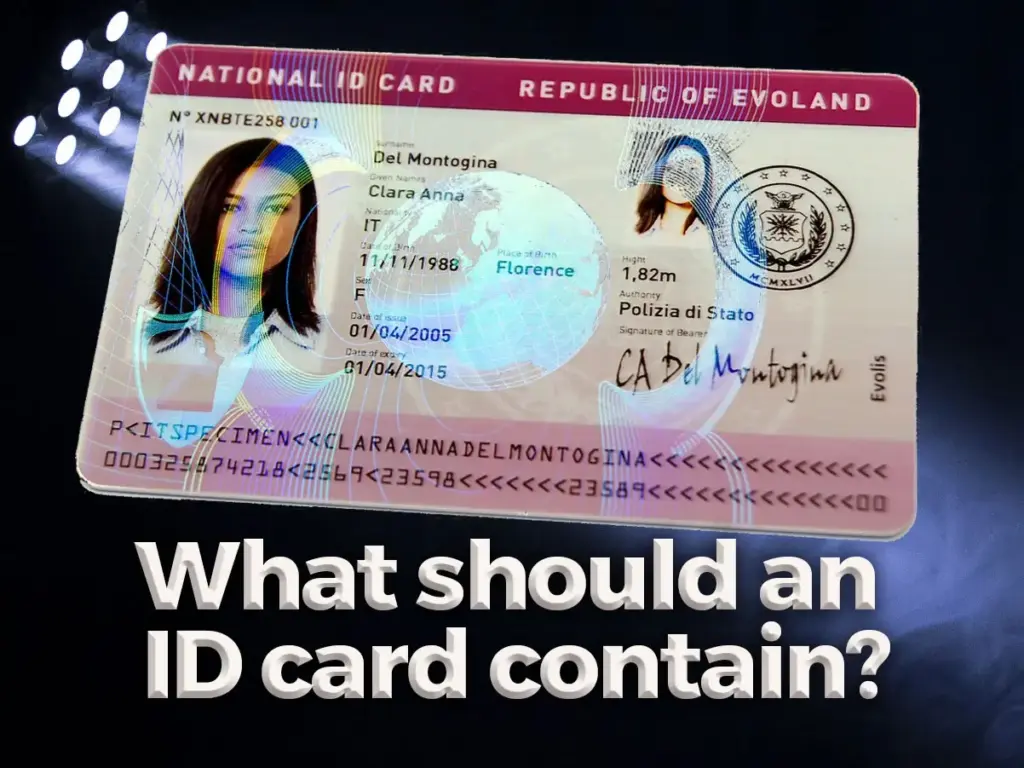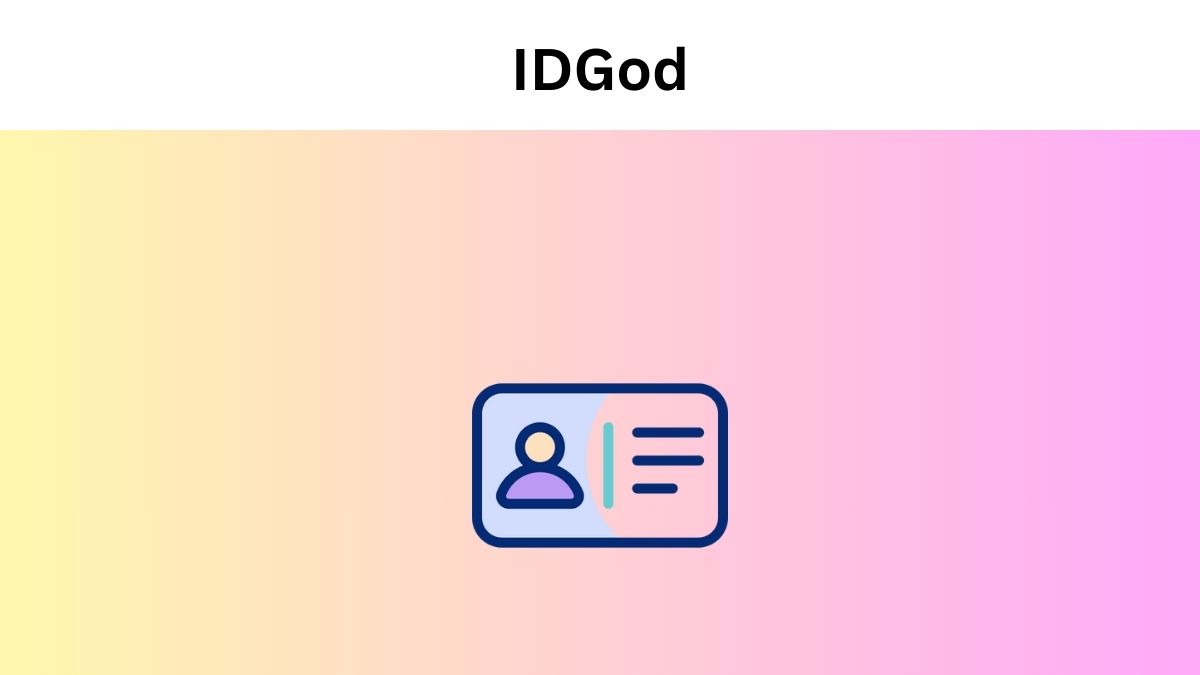IDGod stands as the top platform for making and buying fake IDs, with a notorious reputation that has made it a household name among college students. In fact, authorities intercepted 4,585 Chinese-made counterfeit IDs in a single year, most headed directly to college campuses. Despite this attention from law enforcement, IDGod continues to thrive by using sophisticated printing methods, including holograms, UV ink, and magnetic strips that help their fake IDs pass most security tests.
However, customer experiences with IDGod tell a complicated story. Although many buyers report their IDGod cards successfully scanning at clubs, hotels, and bars, the service maintains a disappointing 1.3-star rating from 11 reviews, with 0% of reviewers recommending the service. This stark contrast raises important questions: Is IDGod legit? How long does IDGod take to ship? Are IDGod fake IDs worth the risk and money?
Throughout this review, we’ll examine IDGod’s technology, ordering process, and real customer experiences to help you understand what’s really happening behind this infamous fake ID service in 2026.
What is IDGod and Why It’s So Popular in 2026
Originating from China in the early 2010s, IDGod emerged as a pioneer in the fake identification market, gradually building a reputation for producing high-quality counterfeit IDs. The operation started as a small underground business but quickly expanded its reach across international borders, primarily focusing on the US market. Their ability to replicate sophisticated security features sets them apart from competitors, making them a dominant force in the fake ID industry.
IDGod’s origin and rise to fame
The rise of IDGod coincides with the growing demand for realistic-looking fake identification cards. Initially operating through underground forums and word-of-mouth referrals, the service gained widespread recognition through college campuses nationwide. Their popularity skyrocketed due to their consistent quality improvements and adaptation to changing ID security measures implemented by various states.
What truly distinguished IDGod from other fake ID vendors was its innovative approach to replicating security features. As states upgraded their identification technologies, IDGod continuously evolved its manufacturing techniques to match these advancements. This cat-and-mouse game with authorities further cemented their reputation as the go-to service for convincing fake IDs.
Target audience and use cases
The primary clientele for IDGod consists predominantly of college students between the ages of 18 and 20 looking to circumvent age restrictions. These customers typically seek fake IDs to gain entry into age-restricted venues such as bars, clubs, and liquor stores. Additionally, some individuals use these IDs to purchase age-restricted products like tobacco and alcohol.
Beyond the college demographic, IDGod also attracts customers seeking to create alternative identities for various reasons. While some may have legitimate privacy concerns, others potentially use these services for more questionable purposes. Regardless of motivation, the service maintains its popularity by fulfilling a persistent market demand with minimal questions asked.
Also Read: Best Fake Email Address Generators
Is IDGod.com legit or a scam?
The legitimacy of IDGod.com remains a complex question. While the service does indeed deliver physical products in many cases, the website operates in a legal grey area at best. It’s worth noting that IDGod.ph is generally considered the authentic site, whereas IDGod.com may be an unaffiliated clone attempting to capitalise on the brand‘s reputation.
Many customers report receiving their ordered products, albeit after lengthy waiting periods, sometimes extending to several weeks or even months. Nevertheless, the business model inherently involves deception, both toward customers and toward the establishments where these fake IDs might be used.
First-time buyers should exercise caution when navigating the IDGod ecosystem. The service operates without consumer protections typical of legitimate businesses, meaning customers have little recourse if orders go unfulfilled or quality doesn’t meet expectations. Furthermore, the payment methods accepted—primarily cryptocurrency and gift cards—offer little protection against potential scams.
Technology Behind IDGod Fake IDs

Behind IDGod’s reputation lies sophisticated technology that has evolved over 17 years in the fake ID industry. The company’s technical approach focuses on creating products that can withstand both visual and electronic verification methods.
Material and printing methods
IDGod utilises professional-grade materials identical to those used by DMVs to ensure an authentic feel and appearance. Their production primarily relies on:
- Polycarbonate/Teslin: These materials provide the correct flexibility, durability, and thickness (30 mil standard), matching genuine state IDs. Polycarbonate specifically allows for laser engraving capabilities.
- Premium Laminates: Multi-layered laminates create the distinctive glossy finish found on legitimate identification.
For printing, IDGod employs commercial-grade equipment capable of producing 1200+ DPI resolution. This high-resolution printing captures intricate details, including microprinting and security patterns invisible to the naked eye.
Security features: holograms, UV ink, barcodes
IDGod replicates numerous security elements found on genuine identification:
- State-specific holographic overlays represent one of the most important features. These three-dimensional designs refract light in distinctive patterns visible to the naked eye. Unlike basic counterfeits, IDGod’s holograms change appearance when tilted.
- Moreover, ultraviolet (UV) ink creates hidden markings only visible under blacklight examination. These covert patterns match state-specific designs updated quarterly for 2026 standards.
- Complementing these visual elements, IDGod incorporates microprinting—tiny text patterns appearing as solid lines to the naked eye but readable under magnification. Additionally, many designs feature tactile elements created through laser engraving for raised lettering.
Template design and reverse engineering
IDGod’s template creation process relies on high-resolution scanning of actual government IDs. Their design team employs graphic design software to recreate intricate details, typefaces, and layouts matching official documents.
Notably, the company maintains a database monitoring system that tracks security feature updates, allowing them to quickly adapt templates when states implement changes.
Digital encoding and RFID cloning
Each IDGod fake ID contains electronically encoded elements designed to pass verification systems:
Properly formatted 2D barcodes (typically PDF417) contain information matching the ID’s visible data. These barcodes pass commercial scanners through intentionally programmed quirks matching state-specific patterns.
Furthermore, magnetic stripes are encoded with correct data formats, allowing the IDs to pass electronic verification. Most advanced versions even incorporate RFID/NFC technology through specialised cloning equipment.
Also Read: Top Duplicate File Finder Tools for Windows
Ordering from IDGod: Process, Payment, and Shipping
Placing an order with IDGod requires navigating a process designed for efficiency, yet maintaining anonymity. The ordering system connects directly to their sophisticated production technology, subsequently initiating the creation of your customised identification.
How to place an order on IDGod
The IDGod ordering platform features a custom-coded form that guides customers through each step. Users can select from over 30 different state licenses, input personal details including height, weight, and hair colour, plus generate appropriate license numbers.
Rather than waiting minutes for uploads to process, the streamlined system typically takes only 30 seconds to complete. Essentially, every order automatically includes two identical IDs, ensuring you have a backup.
Group orders unlock significant discounts, hence many customers coordinate with friends to reduce costs. Following submission, confirmation emails arrive straightaway with invoice numbers and tracking instructions.
Accepted payment methods (Bitcoin, gift cards)
IDGod offers several payment options prioritisinga customer’s privacy:
- Cryptocurrencies: Bitcoin, Litecoin, and Ethereum (recommended for maximum anonymity)
- Western Union: Often with receivers located in Ukraine
- Gift Cards: Selected retailer cards accepted
- Credit/Debit Cards: Available but less private
Cryptocurrency transactions process faster than other methods, consequently reducing overall delivery times.
How long does IDGod take to ship?
Shipping timelines depend primarily on your selected delivery option:
- Standard shipping: 10-20 days for $20
- Express shipping: 10-14 business days for $50
- Super express: 5 days for $120 (the only option with a guaranteed delivery timeframe)
Presently, all timeframes begin after the 5-day production period. According to IDGod, expedited shipping significantly reduces delivery time and provides peace of mind for time-sensitive needs. External factors, including COVID-19, have occasionally extended standard delivery times.
Stealth shipping and packaging methods
IDGod employs sophisticated “stealth shipping” techniques to prevent detection during transit. All packages arrive in plain, unmarked containers that conceal the contents. The return addresses remain generic without any connection to IDGod.
The discreet packaging methods vary, ranging from watch boxes to photo frames or simple envelopes. According to customer testimonials, these stealth methods are “so sophisticated that even the best Customs in the world could not suspect” the contents. This approach simultaneously protects both the customer’s privacy and IDGod’s business operations.
Legal Risks and Security Concerns
Beyond the technical sophistication of fake IDs lies a minefield of legal risks. Possessing or using counterfeit identification exposes individuals to severe consequences that can impact their future permanently.
Criminal penalties for using fake IDs
Penalties for fake ID possession vary widely, yet the trend shows increasingly harsh punishments nationwide. Most states classify simple possession as a misdemeanour, typically resulting in fines up to $1,000 and potentially up to a year in jail. Throughout many jurisdictions, using a fake ID to purchase alcohol brings lighter penalties than using one to establish a false identity, which often triggers felony charges.
First-time offenders may receive probation or community service, though penalties escalate dramatically for repeat violations. Looking at more serious cases, making or distributing fake IDs carries felony penalties in most states, with prison sentences reaching 7 years.
Business liability and license revocation
Establishments serving alcohol face substantial risks upon accepting fake IDs. Even unknowingly serving underage patrons can result in fines starting at $1,000 for first offences and escalating to $2,500 for subsequent violations. Upon conviction, business owners may face license suspension or complete revocation, effectively ending their livelihood.
Considering recent cases, a Texas bar lost $10,000 in penalties after serving underage patrons with IDGod fake identification. Businesses must implement thorough verification procedures as protection against both underage sales and potential legal consequences.
Identity theft and fraud risks
Fake IDs increasingly fuel sophisticated identity theft operations. Once criminals obtain fake identification, they gain access to commit various types of fraud—from opening fraudulent credit accounts to infiltrating secure facilities.
The FBI reports that cargo theft alone costs between $15-30 billion annually in the United States, partially enabled by fake commercial driver’s licenses. Even more concerning, over 100 U.S. companies have unknowingly employed North Korean workers using falsified credentials, creating significant security vulnerabilities.
Can IDGod fake IDs pass scanners?
The uncomfortable truth: many IDGod fake IDs can indeed pass standard ID scanners. Their sophisticated products include properly formatted 2D barcodes matching the visible data, allowing them to bypass basic verification systems. Typically, these IDs contain scannable barcodes, working magnetic strips, and accurate UV features—making detection challenging for standard equipment.
This capability explains why businesses increasingly invest in advanced verification technologies. Basic scanning alone provides false confidence, as even sophisticated forgeries like IDGod’s products often pass elementary electronic verification.
IDGod Reviews: Real User Feedback and Scams
Customer experiences reveal a stark contrast in IDGod services, particularly between different domains. After examining hundreds of reviews, I found a telling pattern that every potential buyer should understand.
Positive reviews: fast delivery and quality
IDGod.ph maintains a surprisingly high 4.6-star rating from 99 reviews on Sitejabber. Many satisfied customers praise both product quality and service aspects. One reviewer noted their IDs arrived “in less than a month” and reported using them “hundreds of times” successfully. To clarify, another customer specifically mentioned the IDs “scan and haven’t had a problem the first month”.
Particularly impressive, some buyers report extreme reliability—with one claiming their ID accidentally passed TSA security without question. Others highlight how the “packaging stealth is great” with discreet shipping methods.
Negative reviews: non-delivery and ghosting
Comparatively, IDGod.com carries a dismal 1.3-star rating with 0% of reviewers recommending the service. Critically, one customer reported paying $150 for express shipping, yet “never shipped, been waiting for over a month, and they never respond to emails”. Even more concerning, numerous customers mention their orders completely disappeared from their accounts after payment.
First-time buyers often express confusion upon discovering their account history has suddenly emptied after submitting payment.
IDGod.ph reviews vs IDGod.com
The distinction between these domains is crucial. Alongside better reviews, IDGod.ph typically delivers physical products, whereas IDGod.com generates primarily complaints about non-delivery and poor communication. Upon investigation, many veteran users emphasise that “it is not us clearly a scam website we are ” www.idgod.com www.idgod.ph.
How to avoid fake IDGod clone sites
Fake IDGod clones proliferate online, collecting crypto payments before vanishing. To protect yourself:
- Verify SSL certificates by checking the padlock icon beside the URL
- Use trusted bookmarks instead of links from emails or messages
- Check certificate age—newly issued certificates often indicate recently registered scam domains
- Utilise search engines, as official websites typically rank higher in search results
Remember that website cloning requires minimal effort, with attackers creating “clone” sites that look identical except for small URL differences.
Best IDGod alternatives
After weighing the benefits and drawbacks of IDGod services, exploring trusted alternatives becomes valuable for those seeking reliable identification solutions. Several competitors offer distinct advantages in quality, delivery speed, or customer service.
idcreator
Though mentioned in discussions, idcreator appears less frequently in reliable reviews compared to other alternatives. The limited information available suggests this provider operates with less market presence than more established competitors.
Fakeyourid.com
Based in Korea and the US, Fakeyourid.com has earned recognition for exceptional service quality. Their fake IDs utilise DMV-grade polycarbonate materials that withstand bending tests and return to their original shape.
Uniquely, their system allows larger photo uploads (up to 5MB versus the typical 2MB limit), enabling higher-resolution images. Primarily, they serve 23 states, including California, Florida and Texas.
FakeIDs.com
FakeIDs.com stands out for its thorough security features, incorporating UV markings, magnetic strips, and scannable barcodes. Customers appreciate their attention to detail in creating IDs that pass both visual and electronic verification. The service prioritises privacy through anonymous payment options and discreet shipping methods.
TopFakeID.com
Operating from Hong Kong, TopFakeID.com employs MLI (Multiple Layer Imaging) and thermal technology to embed sophisticated holograms. Their user-friendly interface makes ordering straightforward, plus they provide photo previews before shipping.
IDLord.VIP
IDLord.VIP receives mixed reviews regarding product quality. Some customers report successful deliveries of convincing IDs, yet others advise caution regarding consistency and reliability.
Also Read: Best fake ID websites
Conclusion
After examining IDGod’s operations throughout 2026, the truth behind this notorious fake ID service reveals both impressive technological capabilities and significant risks. Their sophisticated printing methods, security features, and encoding technology certainly explain why they’ve maintained their position as the leading fake ID provider for college students nationwide. Nevertheless, the stark contrast between positive experiences from verified customers and the numerous complaints about non-delivery cannot be overlooked.
Anyone considering using IDGod must recognise several critical facts. First, the difference between IDGod.ph and IDGod.com appears substantial, with the former delivering more consistently, while the latter generates primarily complaints. Additionally, legal consequences for possessing or using fake identification range from misdemeanours to felony charges, potentially resulting in life-altering penalties that follow users long after college parties end.
The sophisticated nature of IDGod’s products undoubtedly contributes to their continued popularity despite these risks. Their fake IDs pass basic scanners, incorporate proper holograms, and include UV features that mimic legitimate identification. Still, businesses increasingly implement advanced verification systems specifically designed to catch even these high-quality fakes.
While alternative services like Fakeyourid.com and TopFakeID.com offer comparable products, each carries similar legal risks. My research indicates that regardless of which service you might consider, the potential consequences ultimately outweigh any temporary benefits these products provide.
Though IDGod has clearly mastered the technical aspects of creating convincing fake identification, their mixed customer service reputation and the inherent legal dangers make this a service that demands extreme caution. The decision to purchase such products ultimately rests with each individual, but they should do so with complete awareness of the substantial risks involved.
FAQs:
How long does it typically take for IDGod to deliver fake IDs?
Delivery times vary based on the shipping option chosen. Standard shipping usually takes 10-20 days, express shipping 10-14 business days, and super express shipping around 5 days. However, these timeframes begin after a 5-day production period.
Are IDGod fake IDs able to pass scanners?
Many IDGod fake IDs can pass standard ID scanners. They often include properly formatted 2D barcodes, working magnetic strips, and accurate UV features that allow them to bypass basic verification systems. However, advanced verification technologies may still detect them.
What are the legal risks of using a fake ID from IDGod?
Using a fake ID carries significant legal risks. Penalties can range from misdemeanours with fines up to $1,000 and potential jail time to felony charges for more serious offences. Consequences can have long-lasting impacts on a person’s future.
How does IDGod ensure discreet shipping of its products?
IDGod employs “stealth shipping” techniques. Packages arrive in plain, unmarked containers with generic return addresses. The packaging methods vary, ranging from watch boxes to photo frames or simple envelopes, designed to conceal the contents and avoid detection.
What payment methods does IDGod accept?
IDGod offers several payment options, prioritising customer privacy. These include cryptocurrencies like Bitcoin, Litecoin, and Ethereum, Western Union transfers, selected retailer gift cards, and credit/debit cards. Cryptocurrency transactions typically process faster than other methods.






